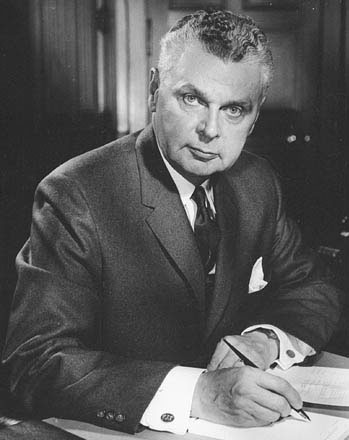On this date in 1957 John Diefenbaker led the Progressive Conservatives to an upset electoral victory, ending 22 years of Liberal rule.
From Frye’s address on the occasion of Victoria University’s awarding an honorary doctorate to Prime Minister Diefenbaker in September 1961.
It is a sign of an immature society when politicians are contemptuous of eggheads. It is equally a sign of an immature society when the university is contemptuous of politics, when it congratulates itself unduly on its clean hands and its pure heart. There is a natural tension between university and government. Government is based on majority rule; the universities are one of the most effective instruments of minority right. The university seeks truth at all cost; the government must seek compromise at all cost. The university, like a totalitarian state, is exclusive, and holds annual purges to remove those who do not support it with sufficient energy. The government, in a democracy, must deal with all the people, and Mr. Diefenbaker was no less representing the people of Canada when he was Leader of the Opposition than he does now. The university tries to abolish conflicting opinion by facts and evidence; the government must reconcile conflicting opinion in an area where all facts and evidence come too late. What the university stands for demands admiration and respect from government; what the government stands for demands admiration and sympathy from the university. It is this equal pact that is symbolized by the honour which the Prime Minister has done us in accepting our degree, and by our desire to honour him in offering it. (CW 12, 314-15)
